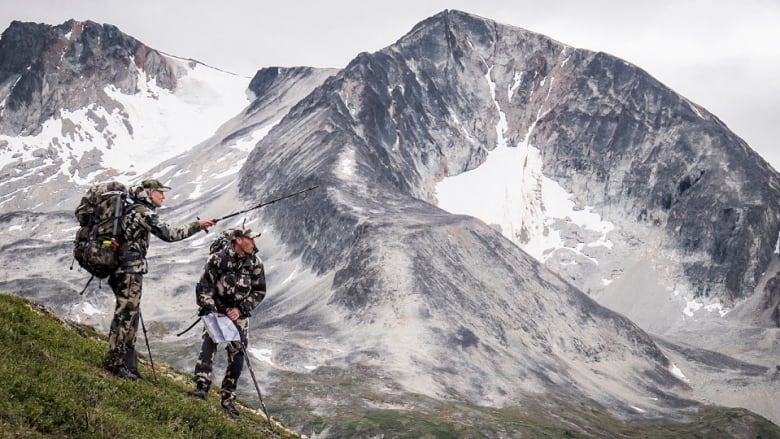Last Updated on July 27, 2023
Welcome to our article on how to show respect to non-hunters. In today’s society, it is important to understand and appreciate the perspectives of those who do not participate in hunting activities. By doing so, we can foster a sense of understanding and promote open dialogue between hunters and non-hunters. It is crucial to educate ourselves about hunting practices and regulations, as this knowledge allows us to engage in responsible and ethical hunting. Respecting private property and hunting boundaries is another key aspect of showing respect to non-hunters. Additionally, we must be mindful of cultural and personal beliefs, promoting empathy and understanding. Let’s explore these topics further in the following sections.
Understanding the perspectives of non-hunters
When it comes to showing respect to non-hunters, it is important to first understand their perspectives. Non-hunters may have various reasons for their beliefs, such as ethical concerns for animal welfare or personal beliefs about the sanctity of life. By acknowledging and respecting these perspectives, hunters can foster a more open and understanding dialogue.
- Recognize that not everyone shares the same views on hunting
- Empathize with non-hunters and try to understand their concerns
- Acknowledge that hunting is a personal choice and not everyone will agree with it
By taking the time to understand non-hunters’ perspectives, hunters can approach conversations and interactions with respect and empathy.
Educating oneself about hunting practices and regulations
One important way to show respect to non-hunters is by educating oneself about hunting practices and regulations. It is crucial to have a deep understanding of the laws and guidelines that govern hunting activities. This includes knowing the hunting seasons, bag limits, and specific regulations for different game species. By being knowledgeable about these aspects, hunters can ensure that they are following the rules and not engaging in any illegal or unethical practices.
Additionally, educating oneself about hunting practices can help dispel misconceptions and stereotypes that non-hunters may have. By being able to explain the reasons behind hunting, the importance of conservation, and the role of hunters in wildlife management, hunters can foster a greater understanding and appreciation for their activities.
Overall, taking the time to educate oneself about hunting practices and regulations is a key step in showing respect to non-hunters and promoting a positive dialogue between both groups.
Educating oneself about hunting practices and regulations
Another important aspect of showing respect to non-hunters is by educating oneself about hunting practices and regulations. It is essential to have a thorough understanding of the laws and guidelines that govern hunting activities. This includes knowing the hunting seasons, bag limits, and specific regulations for different game species. By being well-informed about these aspects, hunters can ensure that they are following the rules and not engaging in any illegal or unethical practices.
Moreover, educating oneself about hunting practices can help dispel misconceptions and stereotypes that non-hunters may have. By being able to explain the reasons behind hunting, the importance of conservation, and the role of hunters in wildlife management, hunters can foster a greater understanding and appreciation for their activities.
Overall, taking the initiative to educate oneself about hunting practices and regulations is a crucial step in showing respect to non-hunters and promoting a harmonious relationship between both groups.
Respecting private property and hunting boundaries is an essential aspect of showing respect to non-hunters. It is crucial to understand that not everyone shares the same enthusiasm for hunting, and some may even have strong objections to it. Therefore, it is important to be mindful of private property boundaries and hunting regulations to avoid infringing upon the rights and beliefs of others.
When venturing into hunting areas, it is essential to obtain permission from landowners and respect their wishes. This means refraining from trespassing on private property and adhering to designated hunting zones. By doing so, hunters can demonstrate their respect for the rights and boundaries of non-hunters.
Additionally, it is important to be aware of hunting regulations and follow them diligently. These regulations are in place to ensure the safety of both hunters and non-hunters and to protect wildlife populations. By abiding by these rules, hunters can show their commitment to responsible and ethical hunting practices.
Respecting private property and hunting boundaries not only fosters positive relationships between hunters and non-hunters but also contributes to a harmonious coexistence in shared spaces. It is a fundamental aspect of showing respect and consideration for the perspectives and beliefs of others.Engaging in open and respectful dialogue
– One of the most important ways to show respect to non-hunters is by engaging in open and respectful dialogue with them.
– This means actively listening to their concerns and opinions without interrupting or dismissing them.
– It also means expressing your own views and experiences in a calm and respectful manner.
– By engaging in dialogue, you can help bridge the gap between hunters and non-hunters and foster understanding and empathy.
– It is important to remember that not everyone will agree with your perspective, and that’s okay. The goal is to have a respectful exchange of ideas.
– Avoid getting defensive or confrontational, as this can escalate tensions and hinder productive conversation.
– Instead, try to find common ground and areas of agreement, and focus on building a mutual understanding.
– Remember that the goal is not to change someone’s mind, but rather to promote understanding and respect for different perspectives.
– By engaging in open and respectful dialogue, you can help break down barriers and foster a more inclusive and respectful hunting community.
Supporting conservation efforts
Supporting conservation efforts is an important way to show respect to non-hunters. By actively participating in conservation initiatives, hunters can demonstrate their commitment to preserving wildlife and their habitats. Here are some ways to support conservation efforts:
- Donate to conservation organizations: Contributing financially to organizations that work towards protecting wildlife and their habitats is a tangible way to show support.
- Volunteer for conservation projects: Getting involved in hands-on conservation projects, such as habitat restoration or wildlife monitoring, can make a positive impact and show a genuine dedication to conservation.
- Advocate for conservation policies: Stay informed about conservation policies and advocate for measures that promote sustainable hunting practices and protect wildlife populations.
- Practice ethical hunting: By following ethical hunting practices, such as obeying bag limits and hunting seasons, hunters can help maintain healthy wildlife populations and contribute to conservation efforts.
By actively supporting conservation efforts, hunters can bridge the gap between themselves and non-hunters, showing that they care about the well-being of wildlife and the environment.
Promoting Ethical Hunting Practices
When it comes to hunting, it is crucial to promote and uphold ethical practices. Ethical hunting involves respecting the welfare of the animals being hunted and ensuring their quick and humane death. It also means following all hunting regulations and laws set forth by governing bodies.
One way to promote ethical hunting practices is by advocating for the use of proper hunting equipment. This includes using firearms or bows that are accurate and powerful enough to ensure a clean kill. It also means using appropriate ammunition or arrows that minimize suffering.
Additionally, ethical hunters prioritize shot placement. They aim for vital organs to ensure a swift and humane death. They also avoid taking shots that may result in non-lethal wounds or unnecessary suffering.
Furthermore, ethical hunters practice responsible game management. This involves not over-hunting or depleting animal populations. It also means respecting bag limits and only harvesting what is necessary for sustenance or population control.
By promoting and adhering to ethical hunting practices, hunters can demonstrate their respect for the animals they pursue and contribute to the overall conservation efforts.
Being Mindful of Cultural and Personal Beliefs
When it comes to showing respect to non-hunters, it is crucial to be mindful of their cultural and personal beliefs. Different individuals and communities have varying perspectives on hunting, and it is important to acknowledge and respect these differences.
One way to do this is by engaging in open and respectful dialogue. Take the time to listen to non-hunters’ concerns and opinions, and try to understand their point of view. Avoid dismissing or belittling their beliefs, as this can create tension and hinder productive conversations.
Educating oneself about different cultural practices and beliefs surrounding hunting is also essential. This knowledge can help foster empathy and understanding, allowing for more meaningful interactions with non-hunters.
Furthermore, it is important to avoid imposing one’s own beliefs onto others. Just as hunters have the right to pursue their passion, non-hunters have the right to their own beliefs and values. Respecting these differences is key to maintaining harmonious relationships and promoting mutual respect.
Encouraging empathy and understanding
Encouraging empathy and understanding is crucial when it comes to showing respect to non-hunters. It is important to recognize that not everyone shares the same beliefs or values, and that includes their views on hunting. By fostering empathy, we can better understand where non-hunters are coming from and why they may have concerns or objections to hunting.
One way to encourage empathy is by engaging in open and respectful dialogue with non-hunters. This means actively listening to their perspectives and concerns, and responding in a thoughtful and considerate manner. It is important to avoid becoming defensive or dismissive, as this can hinder the potential for understanding and mutual respect.
Another way to encourage empathy is by educating oneself about the reasons why people may oppose hunting. This can help to broaden our own perspectives and challenge any preconceived notions or biases we may have. By seeking out information and different viewpoints, we can gain a deeper understanding of the concerns and values of non-hunters.
In conclusion, encouraging empathy and understanding is essential in showing respect to non-hunters. By engaging in open dialogue and educating ourselves, we can foster a greater sense of empathy and respect for those who may hold different beliefs or values. Ultimately, this can lead to more productive conversations and a greater appreciation for the diverse perspectives that exist in our society.
Conclusion: Promoting Respect and Understanding for Non-Hunters
In conclusion, it is crucial for hunters to promote respect and understanding towards non-hunters. By acknowledging and understanding their perspectives, hunters can bridge the gap between the two groups and foster a sense of mutual respect. Respecting private property and hunting boundaries is another important aspect, as it shows consideration for non-hunters’ rights and ensures a harmonious coexistence. Engaging in open and respectful dialogue is key to addressing any concerns or misconceptions non-hunters may have, and it allows for a productive exchange of ideas. Supporting conservation efforts not only benefits wildlife populations but also demonstrates hunters’ commitment to preserving the environment for future generations. Promoting ethical hunting practices is essential in gaining the trust and respect of non-hunters, as it showcases hunters’ dedication to responsible and sustainable hunting. Being mindful of cultural and personal beliefs is crucial in fostering empathy and understanding, as it allows hunters to appreciate the diverse perspectives of non-hunters. By encouraging empathy and understanding, hunters can build bridges and create a more inclusive and respectful hunting community.Learn how to show respect to non-hunters by understanding their perspectives, educating yourself about hunting practices, and promoting ethical hunting.
About The Author

Alison Sowle is the typical tv guru. With a social media evangelist background, she knows how to get her message out there. However, she's also an introvert at heart and loves nothing more than writing for hours on end. She's a passionate creator who takes great joy in learning about new cultures - especially when it comes to beer!

